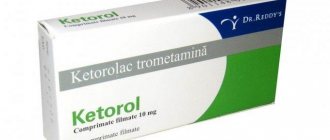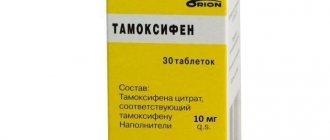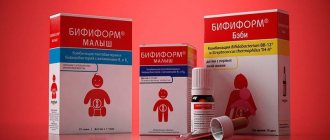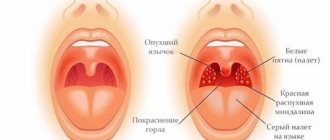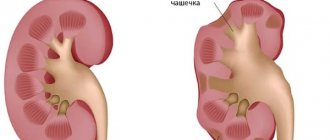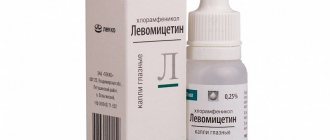For many women, hormone replacement therapy during menopause becomes a real salvation. New generation drugs reduce the intensity of menopausal symptoms and stabilize estrogen and progesterone levels. Moreover, women who are on HRT remain young longer and are much less likely to encounter complications (type 2 diabetes, hyperplasia, breast cancer, etc.).
But not everything is so simple, because estrogen drugs, even the most modern ones, are not suitable for everyone. And their uncontrolled use can lead to serious consequences. Therefore, before taking hormones during menopause, weigh the pros and cons. And we will help you with this.
What hormones does a woman need?
To understand what hormones need to be taken during menopause, let's consider how it proceeds from the point of view of hormonal balance. This period is usually divided into several phases:
- Premenopause (can last from 5 to 10 years);
- Menopause (counting begins one year after the last menstruation);
- Postmenopause (begins 5 years from the last menstruation and ends at 70–75 years).
The body reacts most acutely in the first two periods of menopause. Female hormones gradually cease to be produced by the body. Initially, the regressive process begins in the ovaries, this is facilitated by the depletion of the follicular apparatus. Naturally, the body begins to react to the lack of progesterone and estrogen, including compensatory reactions. At this moment, the pituitary gland begins to intensively produce LH and FSH (luteinizing and follicle-stimulating hormones). Against this background, the sensitivity of hormone-dependent receptors, which also play a role in the normal functioning of the female reproductive system, gradually decreases.
For some time, compensatory mechanisms allow the body to cope with the symptoms of menopause. But the synthesis of sex hormones continues to decline, strengthening the function of the pituitary gland no longer gives the desired results, and its sensitivity to their hormonal deficiency decreases. At this moment, more obvious and frequent manifestations of the menopause begin: menstruation, at first irregular, stops, and the main systems of the body begin to respond to hormonal changes. Symptoms are varied (there are about 30 manifestations of menopause), most often it affects:
- cardiovascular system (hypertension, increased heart rate, increased risk of heart attacks and strokes);
- nervous system: suffers especially severely, hot flashes, migraine pain, insomnia, psycho-emotional instability, etc.;
- endocrine system: manifests itself as age-related weight gain, often leading to obesity, thyroid disease, diabetes, etc.;
- genitourinary system: in addition to ovarian dysfunction and reduction of the uterus in size, hypotension of all muscles is observed, which leads to painful sensations during sexual intercourse (this is facilitated by a reduction in the volume of secretion in the vagina), accompanied by a frequent urge to urinate (later incontinence is possible), etc.
This is not a complete list of symptoms during menopause that cause discomfort to a woman.
The most typical complaints are vasomotor reactions (“hot flashes”, headaches and dizziness, etc.) and psycho-emotional reactions. The risk of developing a number of gynecological diseases, especially hormone-dependent ones, increases. Disturbances in normal hormone synthesis increase the risk of cancer. Should we take adequate measures in such a situation? Naturally, the symptoms of menopause, unpleasant in themselves, carry a number of threats and contribute to the development of various pathological conditions. HRT in this situation may be the only way to relieve acute conditions caused by a lack of hormones.
Menopause itself is a natural process, but it occurs differently for each woman. Hormone replacement therapy is not indicated for everyone; it has a number of contraindications. HRT is not used unless necessary, and drugs are selected taking into account the characteristics of each patient after a comprehensive examination. But to refuse because of prejudice at a time when hormones are simply necessary for the female body means risking your own health in the future.
Herbal remedies for HRT
Herbal medicines include:
- Inoclim. This is a biological supplement based on phytoestrogens. Reduces body heat, increased sweating, vaginal dryness, and stops the development of complications. You need to take 1 capsule per day for 3 months.
- Estrovel. This is a dietary supplement. Contains herbs and natural honey. It can increase the level of estrogen in the body, normalize the psychological state, strengthen the immune system, and prevent the risk of developing osteoporosis. Take 1-2 capsules with meals throughout the day. The course of therapy lasts 2-3 months with a break of 1 week every month.
The advantage of herbal remedies is the natural composition. Synthetic products are created artificially, and therefore cannot fully correspond to the natural substances that the body needs.
What is hormone replacement therapy and how does it work?
Preserving a woman’s health is the main goal of HRT. The balance of hormones is disrupted due to natural reasons, but the body's response to such changes can take on a pathological character. Partial compensation for the lack of hormones from the outside is HRT, which relieves the severity of symptoms.
Hormone replacement therapy for menopause can be aimed at restoring the level of hormones from the group of gestagens or estrogens; they can be prescribed in the form of mono- or complex drugs, contain androgens, etc. That is, the variety of modern medications allows you to choose the most effective tactics in each specific case.
The change in hormonal levels occurs gradually; a decrease in the production of one group of hormones during menopause consistently triggers the entire mechanism. As a result, almost the entire body is involved in the process, responding in one way or another to the changes taking place. Each woman’s reactions can proceed in her own way: some calmly experience all periods of menopause, without experiencing any special problems from periodically appearing symptoms. For others, age-related changes in the body occur rapidly and acutely. During menopause, a woman should especially closely monitor her health; this will help her understand in a timely manner when symptoms are becoming alarming and take timely measures.
Does hormone replacement therapy benefit the female body or is it harmful? There is no clear opinion on this matter. Many patients have a negative attitude towards taking hormones themselves, believing that it is easier to survive the unpleasant symptoms of menopause. There is also no clear agreement among doctors on this issue, but recently HRT has been used more and more often.
The goal of hormone replacement therapy is to help the body cope with the lack of hormones with minimal losses. In European countries, HRT has become a standard option for medical care, and is currently actively used in domestic medicine. During menopause, HRT is the simplest and most effective way to get rid of the unpleasant symptoms of menopause and restore the balance of hormones at the time of restructuring of the body.
The benefits of hormone replacement therapy
Many endocrinologists, in particular Leonid Vroslov, candidate of medical sciences, believe that timely administration of HRT can prevent many diseases. A course of replacement medications, started at the first signs of hormonal imbalance, will prevent ischemic heart disease, diabetes mellitus, hypertension, atherosclerosis, muscle atrophy, and other pathologies associated with aging. The effectiveness of HRT in the prevention of osteoporosis has also been proven, as confirmed by Professor Marina Tarasova. Special therapy may not prolong life, but it will significantly improve its quality.
In women, taking hormonal medications is aimed at eliminating estrogen deficiency. Replacement therapy will provide relief from the painful manifestations of menopause:
- irritability, fatigue, insomnia;
- regular headaches, joint, lumbar pain;
- hot and cold flashes;
- mood instability;
- digestive disorders, urination;
- problems with memory, attention;
- increased heart rate, decreased libido, etc.
In men, drug correction of hormonal levels can be considered as an effective alternative to antidepressants. Increasing testosterone levels with the help of replacement therapy will restore their stamina, strength, sexuality, improve their appearance, allow them to achieve serious results in sports, and prevent the formation of abdominal fat deposits.
Medical research confirms that the level of “male hormone” is responsible for:
- quality of metabolism, the body's sensitivity to oxygen;
- blood sugar balance, cholesterol removal;
- support of cardio- and neurological functions;
- immune system function, muscle mass;
- stable mood, libido.
Testosterone controls a number of vital processes and affects a man’s well-being. Therefore, it is so important to prevent a significant drop in its level, which is why hormone replacement therapy is prescribed. For many patients with cardiac disorders, it helps them stop taking expensive medications to stimulate cardiac activity.
Hormone therapy - all the pros and cons
For women during menopause, hormone replacement therapy is not always prescribed. There are a number of contraindications for which hormones are strictly prohibited. Doctors' recommendations are based on:
- the general condition of the patient’s body;
- severity of symptoms;
- survey results.
This takes into account exactly what hormone the female body needs during a particular period of menopause.
The benefits of using hormonal drugs during menopause are as follows:
- it is possible to compensate for the deficiency of a specific group of hormones;
- the severity of symptoms is relieved, menopause is less painful;
- the body gets the opportunity to rebuild gradually, without sudden changes in hormone levels;
- aging processes slow down;
- taking HRT is under medical supervision, which allows you to adjust the course of treatment as necessary;
- drugs are selected individually, taking into account the health status of a particular patient.
Such treatment can cause harm if a woman begins to take hormonal drugs uncontrollably, based on reviews from friends or her own opinion. Prescribing such medications by a specialized specialist is a prerequisite for successful hormone replacement therapy without side effects and negative consequences.
Sports and hormones
For professional athletes, the use of HRT is not aimed at correcting well-being, but at improving physical fitness. In sports, preference is given to a combination of hormone replacement therapy with anabolic drugs, which can be combined in different ways to achieve better results. However, regardless of the purpose of their use, it is important to monitor your health status. With reasonable consumption, testosterone will only bring benefits: it will increase the volume of muscle tissue, reduce body fat, provide a surge of strength, rejuvenate the body, and increase achievements in sports.
However, you should not thoughtlessly increase the dosage of the drug, so that in the future you do not have to reduce its level with other medications. During administration, you need to constantly monitor the lipid profile, general clinical blood parameters, and the content of estradiol and prolactin in it. Before prescribing the course, you should undergo an examination and take tests.
Do I need to take hormones during menopause?
Drinking hormones during any of the menopause periods is a completely modern and effective way to relieve unpleasant symptoms and help the body cope with hormonal stress. But this should be done exclusively on the recommendations of doctors and after a comprehensive examination.
The selection of drugs is carried out only after passing tests that show the level of hormones. Symptoms of menopause can appear as a reaction to all hormonal changes, but it is important to determine which one needs replacement. Sometimes combination medications are required.
Hormones during menopause will help correct their balance in the body and relieve acute manifestations that arise as a response to natural age-related changes. The aging process slows down and is less painful. It should be remembered that one of the typical manifestations of menopause is sharp psycho-emotional reactions. HRT will help correct these symptoms. That is, women usually only benefit from its use, which allows us to talk about the benefits of such treatment.
HRT after removal of the uterus and ovaries
The consequences in which HRT may be useful:
- the appearance of a depressive state;
- inability to sleep well and work fully;
- changes in hormone levels.
A course of treatment with hormones can be started 2-3 months after the operation.
It is harmful to use HRT in the following cases:
- severe vascular pathologies;
- long experience of bad habits;
- after treatment of malignant tumors;
- high risk of exacerbation of kidney and liver disease.
If dangerous factors are excluded, the woman is prescribed one of the following drugs:
- Klimonorm: brings hormonal levels closer to the natural background in a woman’s body. The course of treatment consists of 3 weeks with a break of 1 week.
- Femoston: eliminates the symptoms of menopause, stops the development of osteoporosis. Can be taken daily for 4 weeks.
- Klimen: prescribed to women experiencing symptoms of changes occurring in the body: growth of facial hair, change in timbre of voice, change in figure to masculine forms. Helps against hair loss, improves skin, promotes weight loss. You need to take the medication in cycles of 3 weeks with an interruption of 1 week.
Dosage regimen
How to take hormonal medications during menopause? Only an experienced specialist can solve this issue based on the results of the examination. At the moment, modern medicine offers two tactics:
- short-term use: for mild menopause, not complicated by acute reactions, therapy can last 1 – 2 years;
- long-term therapy: treatment can be carried out for 2 – 4 years.
It is important to understand that we are talking about a course of taking drugs; with HRT, one drug can be replaced by another. Correction occurs based on the results of tests for hormone levels. The patient needs medical supervision during treatment; this is how the greatest effectiveness can be achieved and any risks can be minimized.
Complex hormonal drugs for HRT
Complex hormonal drugs include:
- Klimonorm. Restores estrogen levels and helps reduce vegetative and psycho-emotional menopausal symptoms. Can be prescribed in case of removal of the ovaries, menopausal syndrome, atrophy of the mucous membranes and skin, and bladder sphincters. The course of therapy is 21 days.
- Femoston. Normalizes estrogen deficiency in the body. Provides slow aging of the skin. Produces vaginal lubrication and slows down hair loss. It is useful to use in cases of urogenital atrophy, osteoporosis, and cardiovascular diseases. The course of therapy is 28 days, 1 tablet per day.
Indications for HRT
Indications for the use of HRT are a number of symptoms that are especially threatening to the female body. These include:
- early menopause;
- surgical menopause;
- risk of developing cardiovascular diseases;
- hereditary predisposition to osteoporosis, diabetes mellitus, obesity, hypertension and other pathological conditions.
Hormones should also be taken if menopause causes acute psycho-emotional reactions in order to eliminate the risk of developing neuroses and depressive states.
Contraindications to the use of HZ drugs
It is prohibited to transport HRT if:
- the presence of a low-quality tumor;
- the presence of acute thromboembolic disease and thrombosis;
- the presence of renal and liver failure;
- presence of diabetes mellitus;
- the occurrence of an autoimmune disease;
- bleeding of unknown nature;
- the presence of high sensitivity to the drugs used;
- high risk of developing epilepsy, bronchial asthma, rheumatism;
- pregnancy or breastfeeding.
Contraindications
Menopausal hormone therapy for some pathologies is never prescribed to patients. There are a number of serious diseases that are not compatible with HRT. It is dangerous to prescribe hormones in such cases, so consultation with a specialized specialist and a comprehensive examination are a prerequisite for starting HRT.
Contraindications:
- bleeding of unknown etiology;
- estrogen-dependent tumors (benign and malignant);
- oncological diseases;
- some pathologies of the heart and cardiovascular system;
- thrombosis, thromboembolism and bleeding disorders associated with increased thrombus formation;
- acute and chronic liver diseases, liver and/or kidney failure;
- complicated diabetes mellitus;
- a number of autoimmune diseases;
- individual intolerance to drugs containing hormones.
The use of HRT will be useful and safe only if the medications are selected by a doctor.
Progestins
To avoid the development of side effects, estrogens are prescribed in combination with progesterone. But if hysterectomy was performed, then the patient is indicated for estrogen monotherapy.
Preparations with progesterone are mainly prescribed from the 14th to 25th day of the menstrual cycle.
There are many progestins on the modern pharmaceutical market, but a number of drugs have the best effectiveness.
- Tablets and dragees:
- Duphaston – 550 rubles;
- Utrozhestan – 4302 rubles;
- Norkolut – 130 rubles;
- Iprozhin - 380 rubles.
- Gels and vaginal suppositories:
- Utrozhestan;
- Crinon – 2450 rubles;
- Progestogel – 900 rubles;
- Prajisan - 260 rubles;
- Progesterone gel.
- Intrauterine hormonal systems:
- Mirena – 12,500 rubles.
Recently, specialists and patients have given preference to the Mirena intrauterine device, which is not only a contraceptive, but also contains progesterone and gradually releases it into the uterus.
Possible side effects
Hormone replacement therapy for menopause can cause a number of side effects, namely:
- fluid retention in the body (edema, pastiness);
- hypo- or hypersecretion of mucus in the vagina, menstrual-like bleeding;
- increased fatigue, weakness, headaches;
- various reactions from the gastrointestinal tract;
- soreness of the mammary glands;
- muscle spasms;
- seborrhea and acne.
These and other reactions can manifest themselves singly or in combination; their occurrence requires contacting a doctor to correct treatment tactics.
Is hormone replacement therapy harmful?
Like any drug treatment, HRT has side effects. But they are not as terrible as hormonephobes try to imagine. For men, the main fear that keeps them from adjusting their testosterone levels is the fear of developing prostate cancer. However, most studies refute the connection between this disease and HRT.
As for women, the risk of malignant tumors of the breast and pelvic organs does exist. But it increases only with long-term use of hormone replacement drugs - with continuous therapy for over 15 years. The risk of any complications increases in heavy smokers and overweight patients.
The disadvantage of hormonal treatment is a significant deterioration in the quality of life after their withdrawal. The body, accustomed to the supply of active substances from the outside, is rarely able to return to their natural production.
Dispelling myths about HRT
Menopausal hormone therapy is often a source of controversy and fear. Patients refuse HRT, believing that their use can lead to:
- addiction;
- obesity;
- complications from the gastrointestinal tract;
- risk of cancer;
- long-term negative results.
Many also believe that hormonal drugs are poorly researched and contain a large number of synthetic analogues of natural hormones. Modern HRT is a new generation of drugs that contain a minimal amount of hormones, natural and completely identical to female ones. They need and can be taken, since most symptoms are signs of natural processes during menopause. HRT does not enhance, but slows down their development. Medicines undergo preclinical and clinical trials. And the lack of data on long-term results in domestic medicine is compensated by studies abroad, where HRT has been actively used for several decades.
Reviews from experts
I am a therapist with 30 years of experience. And I’ve been observing a pattern for quite some time now - as soon as a woman approaches the age mark of 45–47, she becomes a frequent guest in my office. Complaints about everything: insomnia, loss of strength, shortness of breath, bowel irregularities, etc. I recently purchased a guide by the author Madyanova I.V. “Menopausal hormonal therapy. To help the therapist and general practitioner." Everything is written in human language and will help you understand the characteristics of HRT. The publication covers the following issues in detail:
- manifestations of menopause;
- effectiveness and safety of hormonal drugs;
- features of HRT in the presence of concomitant pathologies.
Now I know exactly what to recommend to my menopausal patients.
A. V. Mirova /general practitioner/
Many women experiencing menopause firmly believe that hormone replacement therapy without weight gain is an invention of enterprising pharmacists. This is wrong. On the contrary, well-chosen drugs inhibit the process of gaining extra pounds and prevent the development of obesity. This is very important, because the increase in fat increases the risk of cancer several times. I am definitely in favor of taking hormonal medications during menopause.
M. S. Pavlova /gynecologist-endocrinologist/
List of HRT drugs
The principles of hormone replacement therapy for menopause make it possible to select the most effective course of treatment for each patient. After 40 years, a woman should prepare for the upcoming restructuring of her body. At this point, regular examination becomes important and mandatory for maintaining the normal functioning of the body. HRT helps restore hormone levels that will inevitably drop. Even with normal menstruation, it is important to know the concentration of hormones, which will help you use medications that are effective for menopause in a timely manner.
As the synthesis function fades, the main symptoms of menopause increase. After consultation and examination, a drug is prescribed that will help correct hormonal imbalance at the moment. It can be:
- Phytoestrogens. As the name of this group implies, it contains natural analogues of estrogens. These include: Klimadinon, Femicaps, Remens. Each of them is available in tablet form and is taken as a course;
- Bioidentical hormones. The combined medications Janine and Femoston in tablets also help relieve symptoms of menopause. Duphaston as a derivative of progesterone is prescribed for its deficiency and to neutralize the effect of estrogen;
- Estrogen-containing. Any hormonal product of this type contains synthetic estrogen. The most commonly used are Klimonorm, Premarin, Ovestin;
- The androgenic effect for the prevention and treatment of osteoporosis is provided by Norkolut, Livial, Tibolon;
- Modern drugs with anti-androgenic effect are represented by Androcur, Klimen, Diane-35;
- The best combination products are Triaclim, Angelique.
The list of effective remedies is not limited to this list; there are also Klimara and Dermestil patches, Divigel hormonal gel, Ovestin suppositories, etc. An alternative form of release (gels, patches or suppositories) is used if local application is necessary.
Estrogens
Preparations that contain only estrogens are produced mainly in the form of gels, creams, patches or implants that are placed under a woman’s skin.
The most effective for menopause are the following gels and ointments with estrogens:
- Divigel – 620 rubles;
- Estrogel – 780 rubles;
- Octodiol – the drug is not commercially available;
- Menorest - the drug is not commercially available;
- Proginova - 590 rubles.
Among estrogen patches, the following have performed well:
- Estraderm - the drug is not commercially available;
- Alora – 250 rubles;
- Klimara – 1214 rubles;
- Estramon – 5260 rubles;
- Menostar.
Gels and ointments are quite convenient to use, since they only need to be applied once a day to the skin of the shoulders, abdomen or lower back.
Hormonal patches are an even more convenient dosage form because they need to be changed once every seven days.
Implants that are sewn under the skin last six months, releasing a small dose of estrogen into the blood every day.
Gels, ointments, creams, patches and implants have a number of advantages over oral or injectable forms of hormonal drugs, namely:
- ease of dosage selection;
- gradual penetration of estrogen into the blood;
- the hormone enters directly into the blood without passing through the liver;
- maintaining a balance of different types of estrogens;
- minimal risk of side effects;
- can be used even if there are contraindications to the use of estrogens.
Non-hormonal agents
Non-hormonal drugs for menopause as an alternative to HRT, are prescribed in case of individual intolerance or inability to use hormonal drugs. According to the modern classification, this group includes natural phytoestrogens. They are available in the form of homeopathic remedies and dietary supplements. In addition to the remedies listed above, to replace missing hormones during menopause, use:
- gels Bonisan, Klimakt Hel;
- tea or drops with red brush;
- tablets CI-klim, Estrovel;
- capsules Ledis Formula Menopause, Menopace, etc.
Recipes with boron uterus for HRT
Effective recipes from boron uterus at home help reduce the severity of menopause symptoms.
- Water infusion. You need to take 1 tbsp. dry boron uterus and pour hot water into a mug, wait until it cools down for about 20 minutes. Filter and take half a cup 3 times a day before snacks. Use no longer than 2 weeks.
- Alcohol tincture. You need to chop 2 tbsp. boron uterus, add alcohol 40° 1 cup. Place everything in a container and close tightly. Leave in a dark place for 14 days. As time passes, drink 30 drops before a snack 3 times a day. Dilute the tincture with boiled water, slightly warm. The course of treatment is no more than 14 days.
- Decoction. Add 2 tbsp to 300 ml of boiling water. dry raw materials. Boil for 5 minutes, turn off the heat, cover with a lid and leave for 0.5 hours. Drink half a glass 3 times a day before meals. You can also douche with this decoction at night, but only warm.
When is HRT prescribed?
For different ages, the dosages of hormones vary: there are drugs for women under 45 years old, from 45 to 50, from 51 and older. During perimenopause (before menopause), high doses are prescribed, then they are gradually reduced. Unfortunately, you may be late to jump into the last carriage of the departing train. If, for example, atherosclerosis has already developed, then it has managed to close the estrogen receptors, and no dose of the hormone will make them act. That is why it is so important to start taking sex hormones as early as possible, even if the menopausal syndrome is not yet pressing: you do not suffer from hot flashes, bouts of sweating, insomnia, irritability, hypertension.
There is a term “therapeutic window”. After 65 years, hormone therapy, as a rule, is not prescribed: sex hormones will no longer be able to properly engage in the functioning of the human mechanism. But if HRT is started on time, then it can be continued as long as the heart beats. If there are no contraindications. You need to understand that HRT is not an elixir of immortality; it will not give you extra years of life, but it will greatly improve your quality of life.
Will herbs help with menopause?
Recently, phytohormones have been actively promoted as the best and safest remedy against menopausal syndrome. And many gynecologists advise drinking dietary supplements with phytoestrogens during perimenopause. Plant hormone-like substances really work and help cope with hot flashes, insomnia, and irritability. But few people know that against their background, endometrial hyperplasia (proliferation of the inner layer of the uterus) is more common. This property of estrogen and estrogen-like substances in standard HRT is compensated by gestagen - it does not allow the endometrium to grow. Exclusively estrogen (without gestagen) is prescribed to women if the uterus has been removed. True, recent studies show a beneficial effect of gestagen on both the central nervous system and the mammary glands - it prevents the development of tumors. Unfortunately, unlike real estrogens, phytoanalogues have no effect on metabolism, calcium absorption, or the condition of blood vessels. Plant hormones are a compromise and salvation for those for whom real HRT is contraindicated. But doctor's supervision and regular examinations are also necessary.
Hormones and beauty
Any hormonal changes affect the condition of the skin. Cosmetic procedures themselves are effective only up to 40 years of age. After this, injections of hyaluronic acid, botulinum toxin, peelings are only half the battle; first of all, you need to normalize the hormonal status. When a circumferential lift is performed, excess tissue is cut off, but the quality of the skin remains the same. If there is no estrogen, the skin will be dry, dehydrated, without the proper amount of collagen and elastin. Wrinkles will appear again and again. If you replace the level of estrogen with the help of HRT, the emerging wrinkles will not disappear, but will stop getting deeper. And the weight will not increase.
Red brush tincture
The red brush is endowed with beneficial properties due to its chemical composition:
- silver;
- chromium;
- molybdenum;
- cobalt;
- manganese;
- nickel.
Together they rejuvenate and strengthen the immune system. To prepare the recipe at home, you need to take the root, rinse it thoroughly, chop it finely and dry it. Then combine 300 ml of unboiled water and 1 tbsp. of the resulting product, boil it all and cook over low heat for 15 minutes.
Leave for half an hour, filter and drink about 100 ml 3 times before meals. Adding honey eliminates the bitter taste and enhances the effect. You can drink this tincture for at least a month. For prevention, drink the tincture about 3 times a year.
Signs of hormonal imbalance in women after 50 years
- The reproductive function of women fades away gradually. What are the signs of hormonal imbalance in women after 50 years of age? According to statistics, the last menstruation occurs at the age of 50-52 years . The period of age-related hormonal changes in the body leads to changes in blood composition. The ratio of hormones in plasma is redistributed.
- Complications that arise during menopause largely depend on the nature of labor, physical activity, quality of nutrition and other factors.
It's important to pay attention to this
The menopause period occurs differently for every woman. Premenopause in most cases occurs after 45 years of age . The usual menstrual cycle ceases to be regular. 12 months without menstruation leads to the final stage - menopause .
- Even in the absence of pronounced symptoms, the course of menopause affects women's attractiveness. For most women, menopause is accompanied by symptoms that cause discomfort.
- Hormonal imbalance in women after 50 years provokes weight gain and the appearance of early wrinkles.
- Attraction to the opposite sex decreases, sexual activity gradually fades away.
- The woman experiences mood swings , frequent ailments, and lack of interest in active social life.
The mood changes
- Insomnia and emotional instability occur .
- There is a rapid heartbeat and headaches.
- There are problems with urination and pain.
- Hot flashes during menopause throw the body into heat and chills. Increased sweating forces you to maintain enhanced hygiene. timely hormone replacement therapy during this period
What examinations need to be carried out during HRT
When prescribing hormone replacement therapy, it is necessary to undergo tests that will help eliminate contraindications. Plus some basic research. It is necessary to undergo an examination by a gynecologist, an ultrasound of the pelvic organs, a biochemical blood test with an emphasis on liver function indicators and a blood test for coagulation. In the future, mammography, ultrasound of the uterus and ovaries, and a smear for oncocytology from the cervix are required once a year.
It is important to check the blood for coagulability and glucose levels, so as not to miss diabetes mellitus, to check the functioning of the liver - a biochemical blood test is taken. Serious liver problems, such as the effects of hepatitis, cirrhosis, diabetes, are most often a contraindication for hormone therapy. With minimal liver damage, HRT can be prescribed, but not in tablets, but in the form of a patch or gel. Thyroid pathology should be taken into account. HRT is not prescribed for uterine bleeding of unknown origin, otherwise cancer can grow. Gallstones are not an obstacle to HRT; they are removed and then treated with hormones.
If you are overweight, you should find out what is causing it. Perhaps thyroid dysfunction causes increased production of prolactin, which leads to obesity? Or maybe the culprit is the increased activity of the adrenal cortex, where hormones are produced that are responsible for the accumulation of fat?
And when starting therapy, it is very important to remember: hormones are not a magic wand. The effect may be reduced due to poor nutrition. Any woman today knows what proper nutrition is: a lot of vegetables and fruits, lean meat, fish several times a week, plus vegetable oil, nuts and seeds.
Beneficial properties of sage for HRT
Tea with the addition of Sage improves blood, stimulates vascular tone, and reduces the intensity of sweating.
- A drink in the form of tea - prepared from dried Sage leaves. You need to put 2 tsp in a cup. dry grass leaves, and add boiled water. Wait 0.5 hours for infusion. This healing tea is consumed at least 3 times a day, 1 cup. The taste can be changed by adding a little lemon juice and a small spoon of honey. If you drink this tea with nutmeg, the effect of therapy will increase.
- Sage infusion. You need 2 tbsp. put the dried herbs in a container and pour 600 ml of boiled water into it, put on low heat. This solution should boil for no more than 6 minutes. After it cools down, take this tincture throughout the day.
Take the product for 3-4 weeks, then take a break for 3 weeks.
Sage has beneficial properties:
- astringent;
- anti-inflammatory;
- antibacterial;
- antispasmodic;
- wound healing;
- antidiaphoretic;
- thermoregulating.

